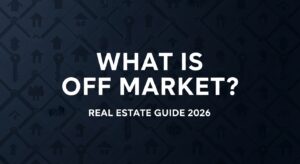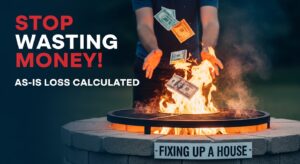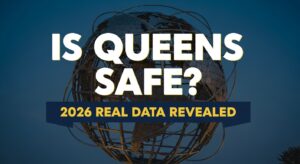Selling a house is a big decision, but what if the person selling the home isn’t the legal owner? Can someone sell a house they don’t own? The short answer is no. Selling property without ownership is illegal and can result in fraud charges.
However, there are a few legal situations where someone may sell a home they don’t technically own. This article explores the legal risks, exceptions, and how we help homeowners sell their properties legally and hassle-free.
What Happens If Someone Tries to Sell a House They Don’t Own?
A property sale requires legal ownership. If a person’s name is not on the title, they cannot sell the house. Trying to sell a home without ownership can lead to serious consequences, including:
1. Fraud Charges
Selling a property without owning it is considered fraud. This can lead to legal consequences such as lawsuits, fines, and even jail time. Real estate fraud is taken very seriously, and buyers can press charges against fraudulent sellers.
2. Financial Losses
A buyer who unknowingly purchases a home from an unauthorized seller may lose money. If the legal owner disputes the sale, the buyer may have to return the property, leading to financial damages.
3. Title and Ownership Disputes
Property ownership is recorded through title deeds. If a house is sold by someone without ownership rights, the transaction may be legally reversed. This can result in a lengthy legal battle that affects both the seller and the buyer.
Exceptions: When Can Someone Sell a House They Don’t Own?
While selling a property without ownership is illegal in most cases, there are some exceptions. These include:
1. Power of Attorney
A homeowner may grant someone Power of Attorney (POA) to handle legal and financial matters on their behalf. If a person has POA over a homeowner’s property, they can legally sell it.
However, the Power of Attorney must be properly documented and notarized to be valid.
2. Executor of an Estate
If the legal homeowner has passed away, the executor of the estate may have the right to sell the property. An executor is responsible for handling a deceased person’s assets, including real estate.
In such cases, the executor must follow the terms of the will and any legal requirements to transfer or sell the property.
3. Real Estate Wholesaling
Real estate wholesalers do not own the properties they sell. Instead, they enter into a contract with the homeowner and assign that contract to a buyer.
This process is legal, but wholesalers must have a valid contract with the actual property owner before attempting to sell.
4. Foreclosure or Short Sales
Sometimes, banks or lenders initiate property sales if a homeowner defaults on their mortgage. A bank does not own the home but can force a sale through legal foreclosure proceedings.
Similarly, a short sale happens when a lender allows a homeowner to sell a house for less than what they owe on their mortgage.
How 123 We Buy House Helps Homeowners Sell Legally
At 123 We Buy House, we ensure that every home sale is legal, fast, and hassle-free. Here’s how we help:
- We buy houses directly from legal property owners. No middlemen, no risks.
- We offer fair and fast cash deals. No waiting for banks or agents.
- We handle all legal paperwork. No need to worry about title issues or ownership disputes.
If you need to sell your house quickly and legally, our team is here to help.
How to Protect Yourself from Real Estate Fraud
Whether you’re selling or buying, it’s essential to take precautions to avoid real estate fraud. Here are some tips:
1. Verify Property Ownership
Before buying a home, check the public property records to confirm the seller is the rightful owner. Buyers can request a title search to ensure there are no ownership disputes.
2. Work with Trusted Professionals
Only work with reputable real estate buyers and companies like 123 We Buy House. Avoid deals that seem too good to be true or sellers who refuse to show ownership documents.
3. Get Legal Advice
If you’re unsure about a real estate transaction, consult with a real estate attorney before signing any contracts. Legal experts can confirm whether a sale is legitimate.
Conclusion
So, can someone sell a house they don’t own? In most cases, no. Selling property without legal ownership is fraudulent and illegal. It can lead to lawsuits, financial losses, and criminal charges. However, there are legal exceptions, such as Power of Attorney, estate executors, and wholesaling.
If you want to sell your house legally and fast, 123 We Buy House can help. We buy homes directly from owners, with no agent fees, no repairs, and no waiting. Contact us today for a fair cash offer and a stress-free sale!





